|
Buzzzzz! Merlin the drone launches into the sky. The controller screen in my hands displays a bird's eye view of sandy shores and seafoam green waves. A grey-purple smudge slowly swishes in the corner. “Hey- is this what I think it is!?” “Yeah! I think you just spotted a white shark!” This moment captures the thrill of my time with the Atlantic White Shark Conservancy(AWSC) as a MISS fellow. Who knew a conversation at the POSea conference would lead me to meet white sharks on Cape Cod? Assisting the research team was one of many roles I dived into this summer. Thanks to the generosity of MISS and AWSC, I was able to extend my fellowship from 6 to 13 weeks. Over the course of that time, I've honed my communication skills, met fin-tastic people, and weaved art and science into several masterpieces. A year ago I was a lab assistant with a bachelors in Marine Science studying intertidal anemones, snails, and limpets. Through MISS, I dived head first into sensational shark science and surfaced as a fired up artist and scientist. Stepping into the future, my goal is to use multi-modial art to increase accessibility to science for people and groups historically excluded from 'academia' with the intent of empowering them with connections and knowledge to protect what they love. I plan to apply for my masters degree in scientific illustration and someday do a PhD in conservation science. I can now envision myself soaring into a career of science communication- whether it be in shark science or beyond the elasmo-verse!... Read the rest below!
0 Comments
When I received my fellowship acceptance, I knew my life would be changed forever. I recognized that the experience and knowledge that I would gain during my time as a Eugenie Clark Fellow would be something that I likely would not have had otherwise due to financial barriers in this field. As a female first-generation student who identifies with historically excluded groups, I have faced several hardships throughout my academic and early-career scientific journey. This fellowship acceptance meant absolutely everything to me because I knew that I would be able to fully exist in a safe space for an extended period of time. This also meant that I would get the chance to learn and grow with the support of so many amazing and diverse groups of people I would meet along the way.
During the fellowship, I had the opportunity to participate in fieldwork, education, outreach, and even attend a conference, along with many other extraordinary experiences. In doing so, I was surrounded by supportive mentors and worked alongside the other fellows who were selected this past summer. I am very grateful that I met so many memorable people and created lasting relationships that I will forever cherish and value. These experiences created a sense of community which I had been seeking for so long in this field. It was a wonderful feeling to be surrounded by so many supportive people who uplifted each other. I hope to carry this on beyond the fellowship and create these spaces for others throughout my academic and career journey. I am currently a master’s student and have always had the desire to continue my education to earn a PhD to become a shark researcher, and eventually, a professor and mentor. After serving as a camp instructor at the MISS Summer Camp during the fellowship, I realized at that moment that my passion for teaching and mentoring was firmly established from that experience. This is something that I will always be grateful to MISS for, along with numerous other things. Despite the difficulties that some of us face in this field, MISS is a constant reminder that anything is possible if you put your mind to it, and I hope to inspire that in others as well. It was an absolute honor to be a Eugenie Clark Fellow and I would especially like to thank MISS, Havenworth Coastal Conservation, and Chicago Zoological Society’s Sarasota Dolphin Research Program for this opportunity. I will never forget all of the support, great memories, and experiences from my time as a Eugenie Clark Fellow. Upon reflecting on my experience with the Eugenie Clark Fellowship, I am filled with gratitude for the unique opportunity that came my way. Initially, I couldn't help but wonder how fortunate I was to be selected for such a prestigious position. Taking into account the expectations placed on me, I felt confident in my ability to handle the physical demands of the fellowship. However, I couldn't help but question whether I possessed the intellectual prowess and contributions necessary to make a meaningful impact in the world of shark sciences.
Being a minority, a woman, and a single parent, I was already well aware of the additional challenges that these characteristics might bring. It made me question if I would be able to fully embrace and succeed in this exceptional opportunity. Nevertheless, I embarked on this incredible journey of fieldwork, which not only involved studying sharks but also extended to dolphins, their prey, and stingrays. The experience was enriched by various modalities of fieldwork, including data analysis and science communication. The heart of the fellowship lay in the opportunity to work as a summer camp leader, a role that allowed me to express my own unique scientific voice. It was a chance to inspire and educate others about the wonders of the marine world. Throughout this journey, I was fortunate to be guided by mentors who not only generously shared their scientific expertise but also provided invaluable emotional support. In the end, the fellowship proved to be a transformative experience. I surpassed my own expectations and discovered untapped potential within myself. I learned that being a minority, a woman, and a single parent did not hinder my capabilities but instead enriched my perspective in the world of shark sciences. The fellowship provided me with the confidence and skills to contribute meaningfully to the field, and I now look forward to continuing my journey of exploration and discovery in the realm of marine biology. I am an empowered Science Communicator. I am a scientist. An adventurer, explorer, and a badass. In the quiet corridors of memory, I often find myself revisiting the vivid tapestry of my journey as a shark researcher. As I sit down to reflect on my journey through the Minorities in Shark Sciences (MISS) fellowship, I am struck by the profound shift in perspective that I have experienced. My name is Meghana, and I am a first-generation graduate from a conservative Indian middle-class family. My path as a shark researcher began in the bustling fish markets of India, where I predominantly worked with thousands of dead sharks and rays, collecting fisheries dependent data and gaining insights into the dynamics of overharvesting, livelihood dependency, and the role these threatened species played in our ecosystems. The MISS fellowship opened doors to a whole new realm of shark research with the internship opportunity at the Bimini Shark Lab, from participating in research activities in Florida Keys to sharing space with the curious beings in Bimini waters. This experience allowed me to witness firsthand the developments and advances in marine sciences and fishing practices in developed countries, contrasting them with the situations I had encountered back home. One of the most remarkable moments during the fellowship was my first encounter with live sharks while assisting with shark work-ups in Florida keys. The bonnet hammerhead being the first to see. It was an eye-opening experience to observe these creatures in their natural environment and engage in practices that contribute to shark sciences as part of fisheries independent research. Additionally, setting fishing gears like drum lines and longlines as part of this research methodology provided me with a deeper understanding of the gears and techniques employed to study these animals alive. ... Read the rest below!
My involvement in the fellowship encompassing social media management and the administration of non-profits has provided me with invaluable insights into the intersection of science communication and organizational dynamics. These experiences have enhanced my skill set and deepened my understanding of the vital role these aspects play in shaping the success of scientific initiatives.
Delving into the administrative aspects of non-profits taught me the behind-the-scenes intricacies that enable impactful initiatives to thrive. Collaborating with dedicated individuals passionate about our cause, I gained insights into grant applications, budget management, and strategic planning. The experience underscored the importance of clear communication, efficient coordination, and adaptability to the ever-changing landscape of non-profit work. I discovered that the passion that fuels scientific research must be complemented by organized and effective administration to ensure sustainability. Crafting engaging posts about our research endeavors, fieldwork, and the diverse backgrounds of our participants allowed me to convey the human side of scientific pursuit. I strived to break down complex concepts through carefully curated content, making them accessible to a lay audience. Reflecting on these experiences, I am struck by the symbiotic relationship between effective science communication and well-organized administration. While social media serves as a bridge, connecting researchers with a global audience, proficient non-profit management ensures that the infrastructure supporting these endeavors remains robust. The Eugenie Clark fellowship was a very special opportunity for me. Prior to this fellowship, despite having some field work experience, I had never felt I was part of the science community. I felt I had so many gaps in my knowledge and to be a part of shark science, I needed to be more prepared and experienced. It felt out of reach. Therefore, handling and working with sharks was always something that I wanted to be a part of, but couldn’t. I just didn’t know how I could get there. Having access to so many resources, advice and guidance from our mentors, and exposure to a variety of scientists and like-minded people that by the end, not only did I realize that to be part of science was easier than I had imagined but that I already was there.
What I loved about this fellowship was that it armed us with an insane amount of skills. I knew it would be very hands-on, but I couldn’t have imagined the various types of fieldwork and experiences we would be doing and the different types of species we would be handling and learning from. This left me feeling more confident in what I wanted to do and what I could do. I will always be grateful for the knowledge and skills I gained from being a part of this opportunity. With that said, what I feel I will hold closer to me, are the special connections and people I met and made friends with along the way. I know it sounds cliché and kind of corny, but I think at the end of the day it’s the people around us that impact us the most. Yes, it was super cool to handle a shark, take muscle biopsies, fins clips, to measuring little fish and spotted eagle rays, taking photo ID’s of bottlenose dolphins, but that isn’t going to be my initial memory of the fellowship years from now. What will stay embedded in me are the amazing conversations I had with the other fellows at Ben & Jerry’s, the laughs I had with the best roommate ever at the JMIH conference, or facing the fact that I might like kids more than I thought I did. This is what made being part of fellowship so special to me. Being a Eugenie Clark fellow solidified my love for sharks, my love of working with sharks, my love in shark science and ignited within me a new love for science communication. I finally feel that I am part of this world and have amazing friends and mentors I can count on. I can confidently say that this fellowship changed my life. |
Archives
May 2024
Categories |
||||||||||||
About missMISS provides a community and funded opportunities for gender minorities of color who wish to enter the field of shark sciences. We aim to show that there are many gender minorities of color succeeding in and interested in this field.
We fundraise and apply for grants to create paid opportunities to attempt to knock down the financial barrier into shark sciences. We encourage other organizations in our field to do the same. |
Jump to:Our Story
Become a Member Friends of MISS Workshops Sponsorship Program Donate 2023 Annual Report 2023-2026 Strategic Plan Results Framework Final Report MISS is a registered US nonprofit, tax-exempt corporation under 501 (c)(3) of the Internal Revenue Code (EIN: 85-2192211).
|
CONTACT USMailing Address:
PO Box 10493 Bradenton, FL 34282 © COPYRIGHT 2022. Minorities in Shark Sciences Inc.
|
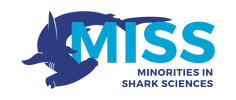
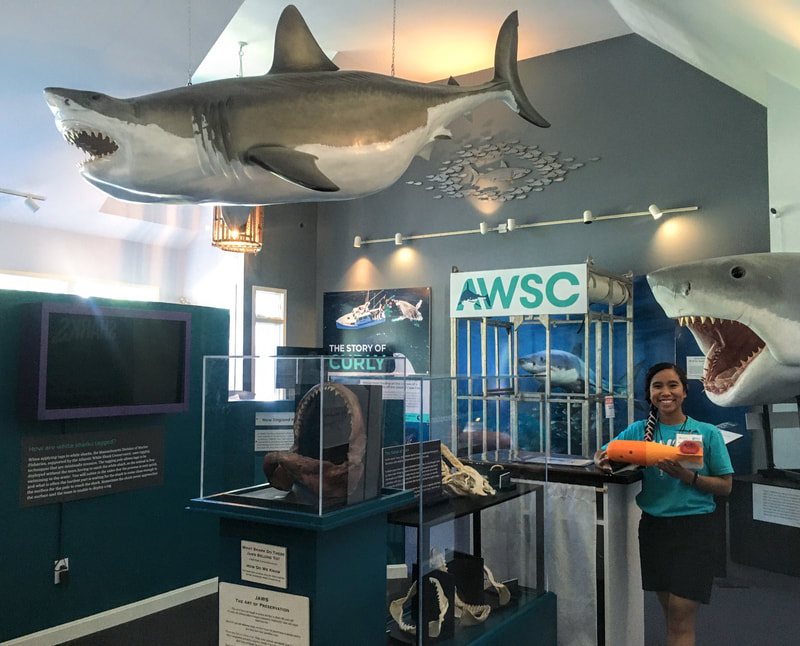
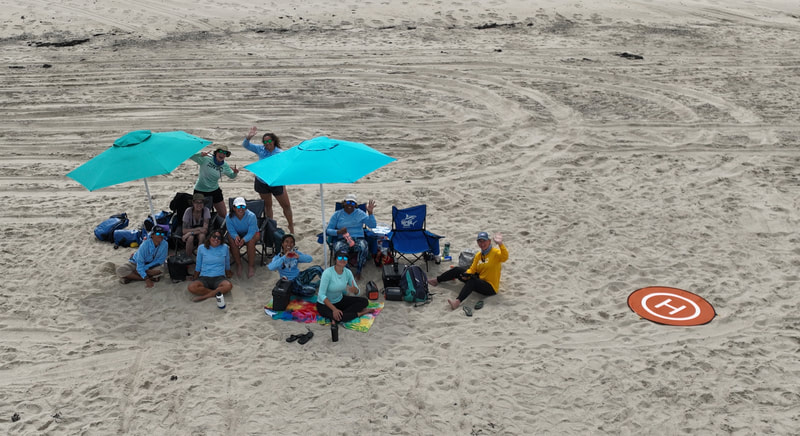
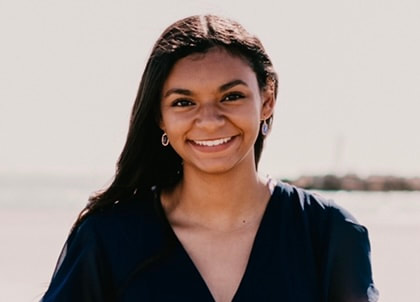
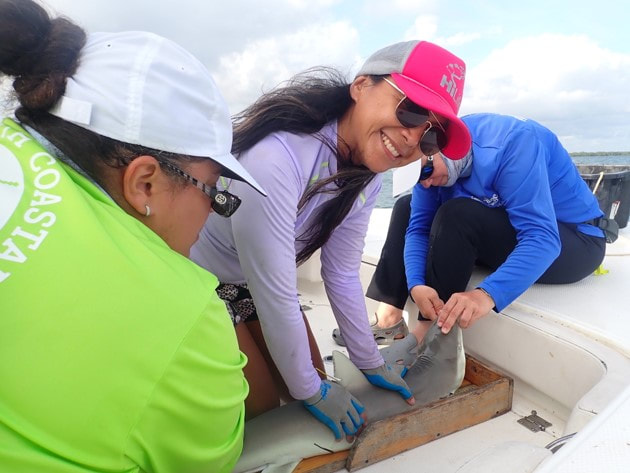
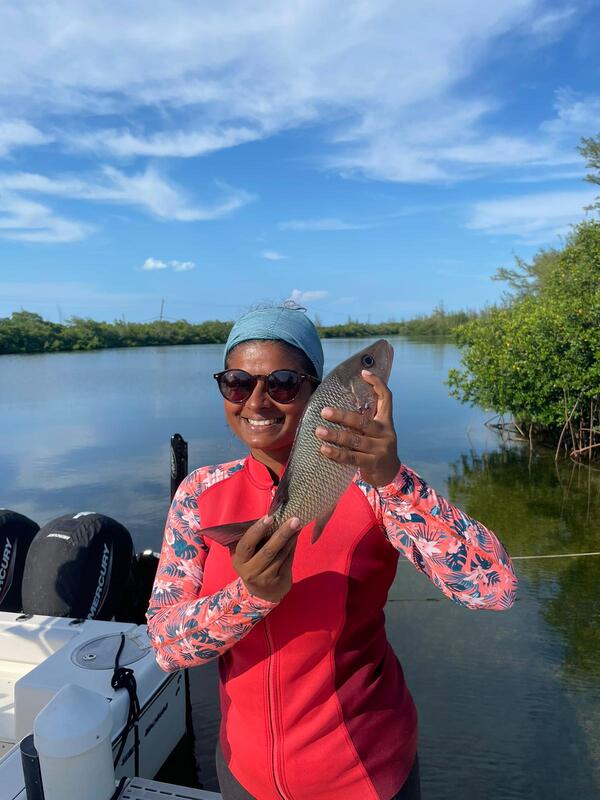
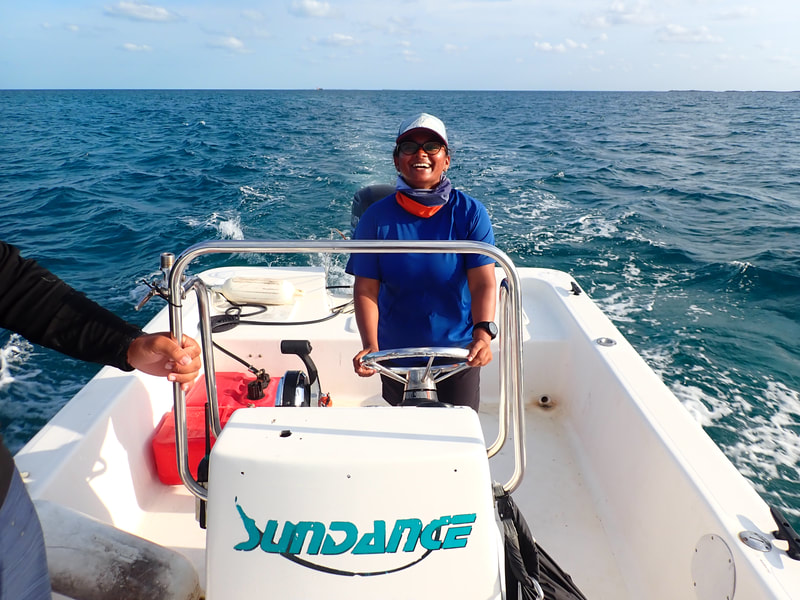
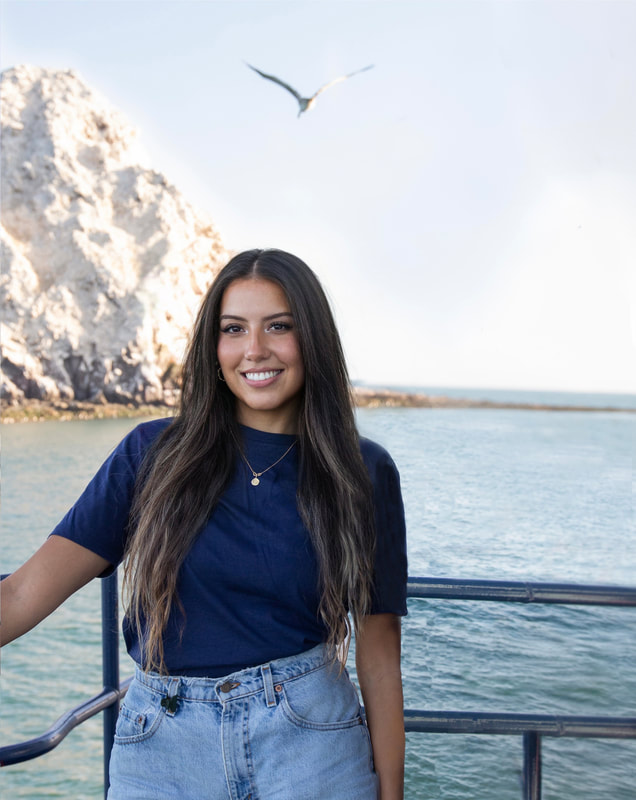
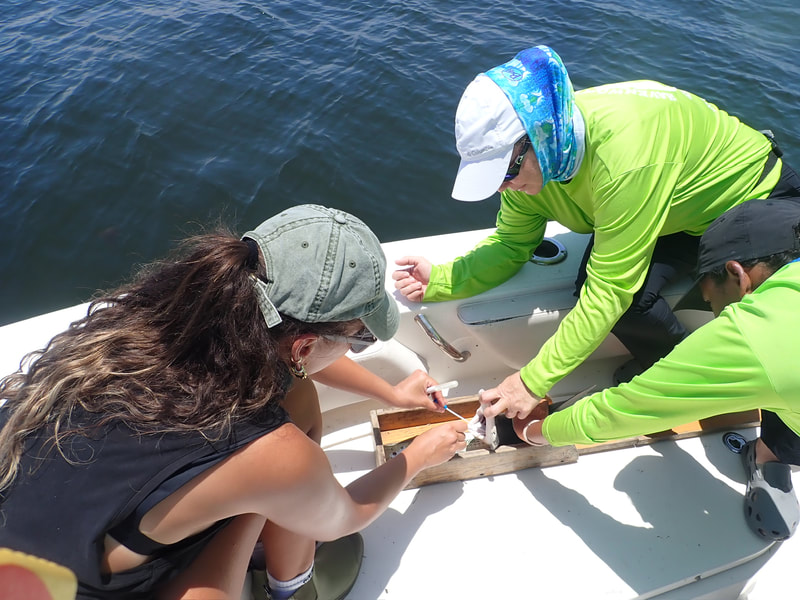
 RSS Feed
RSS Feed
